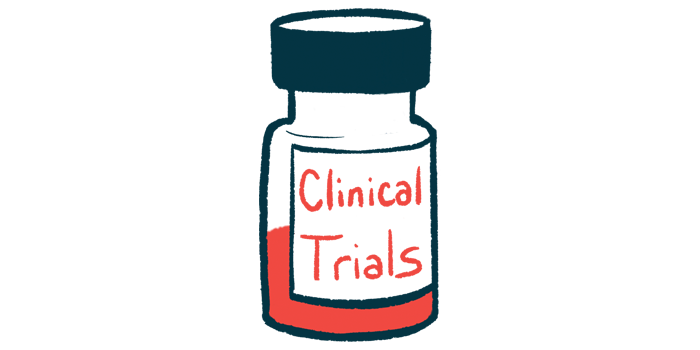ND0612 allows for better on time than oral levodopa: Phase 3 trial
Update on study in advanced Parkinson's patients finds longer symptom control
Written by |

Note: This story was updated March 21, 2024, to correct that NeuroDerm is a subsidiary of Mitsubishi Tanabe Pharma Corp.
ND0612, a liquid formation of levodopa/carbidopa given without interruption via an under-the-skin pump, continues to outperform standard oral levodopa/carbidopa at controlling motor symptoms in people with advanced Parkinson’s disease, without causing troublesome side effects.
That’s according to newly published data from the Phase 3 BouNDless (NCT04006210) trial, sponsored by the therapy’s developer NeuroDerm, a subsidiary of Mitsubishi Tanabe Pharma Corp. (MTPC).
“These findings … show us that continuous, subcutaneous delivery of levodopa/carbidopa with ND0612 has the potential to impact people living with Parkinson’s disease who experience motor fluctuations,” Gustavo Suarez Zambrano, MD, vice president of medical affairs at Mitsubishi Tanabe Pharma America, said in a company press release.
“We look forward to the continued evaluation of ND0612 to further our understanding of its effect in Parkinson’s disease, and as a part of our commitment to address unmet needs for this patient population,” Suarez Zambrano said.
ND0612 delivers levodopa/carbidopa as continuous infusion via a small pump
BouNDless trial details were published in Lancet Neurology in the study, “Safety and efficacy of continuous subcutaneous levodopa–carbidopa infusion (ND0612) for Parkinson’s disease with motor fluctuations (BouNDless): a phase 3, randomised, double-blind, double-dummy, multicentre trial.”
The loss of brain cells that make the signaling molecule dopamine, and the subsequent reduction in dopamine levels, leads to the onset of Parkinson’s symptoms. Oral levodopa plus carbidopa is a standard treatment, whereby levodopa is converted into dopamine in the brain, while carbidopa helps to prevent levodopa from being broken down in the gastrointestinal tract, so more of it can access the brain.
Although effective, the oral combination therapy often loses its ability to manage Parkinson’s motor symptoms over time, and patients experience so-called off times, periods when symptoms aren’t controlled between doses. Moreover, long-term levodopa/carbidopa use is associated with a side effect known as dyskinesia, marked by uncontrolled movement.
“Orally administered levodopa/carbidopa tablets remain the most essential pharmacological intervention in Parkinson’s disease; however, over time, the reliability of its benefits can decrease, leading to the onset of motor fluctuations,” said Alberto Espay, MD, the trial’s principal U.S. investigator and director of the Gardner Family Center for Parkinson’s Disease and Movement Disorders at the University of Cincinnati, in Ohio.
ND0612 is a liquid formulation of levodopa/carbidopa delivered continuously under the skin, or subcutaneously, using a small pump. It aims to improve levodopa/carbidopa’s pharmacokinetics (a drug’s movement into, through, and out of the body) by avoiding the digestive system while maintaining 24-hour exposure to the therapy.
ND0612 extended daily on time with advanced disease by average of 2.2 hours
BouNDless enrolled 381 Parkinson’s patients whose symptoms were not completely controlled with oral levodopa/carbidopa. These people had an average daily off time of at least 2.5 hours.
After determining the optimum dose for each patient, 259 (68%) randomly were assigned to either oral levodopa/carbidopa or to ND0612 for 12 weeks (about three months), with a matching oral or subcutaneous placebo. A total of 243 (94%) people completed the study.
Consistent with previously reported top-line trial results, newly published details show that subcutaneous ND0612 extended the average daily on time, periods when symptoms are adequately controlled, by 2.2 hours compared with 0.48 hours with oral levodopa/carbidopa. This difference represented a statistically significant increase of 1.72 hours with ND0612, meeting the trial’s primary goal.
In secondary study goals, ND0612 significantly reduced daily off time by an additional 1.4 hours compared with oral levodopa/carbidopa. ND0612 also significantly outperformed the oral therapy by lessening motor symptoms that cause problems in daily life, as assessed by part two of the MDS-Unified Parkinson’s Disease Rating Scale (UPDRS).
Overall health status, rated by patients via the Patient Global Impression of Change (PGIC) or by their clinicians using the Clinical Global Impression of Improvement (CGI-I), also significantly improved with ND0612 over oral levodopa/carbidopa.
ND0612’s safety profile was similar to the well-established safety profile of oral levodopa/carbidopa. The most frequently reported treatment-emergent side effects were infusion site reactions, seen in similar proportions in the ND0612 and oral levodopa/carbidopa groups (57% vs. 43%).
A comparable number of patients treated with ND0612 or oral levodopa/carbidopa also discontinued the trial for any reason (6% vs. 6%) and due to side effects (5% vs. 3%).
Long-term extension trial monitoring safety of continuous treatment
Serious adverse events occurred in four patients given ND0612 that were related to the treatment: two cases of infusion site infection, one infusion site abscess and ulcer, and one case of tingling or pricking (“pins and needles”) caused by sensory nerve damage. One death was reported in an ND0612-treated patient, caused by a fall leading to traumatic brain injury and considered to be unrelated to treatment.
Participants who completed BouNDless had the option to enter the BeyoND (NCT02726386) trial, an ongoing long-term safety study, with some patients in their eighth year of follow-up. Data to date show that ND0612 is generally well-tolerated across more than four years of treatment. This study is due to finish in early 2027.
“We are encouraged by these positive data, which we believe support ND0612, if approved, as a potential treatment option for people with Parkinson’s disease experiencing motor fluctuations who have thus far had limited options,” Espay said.



